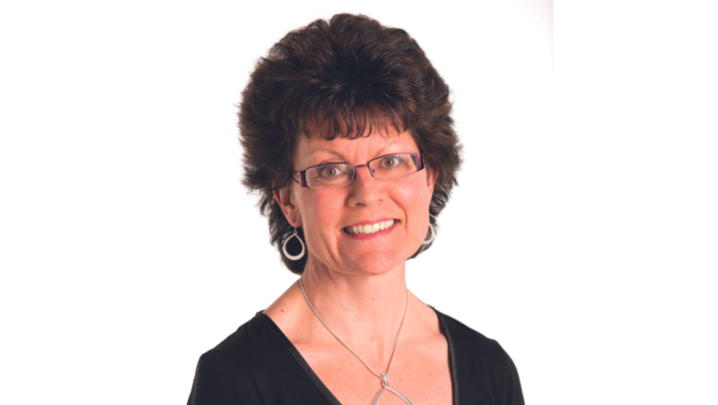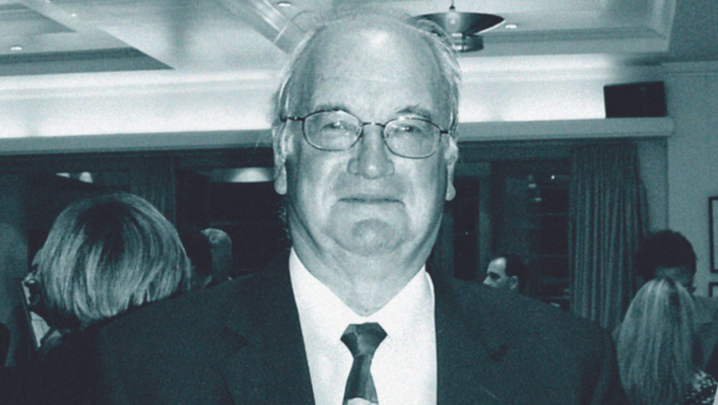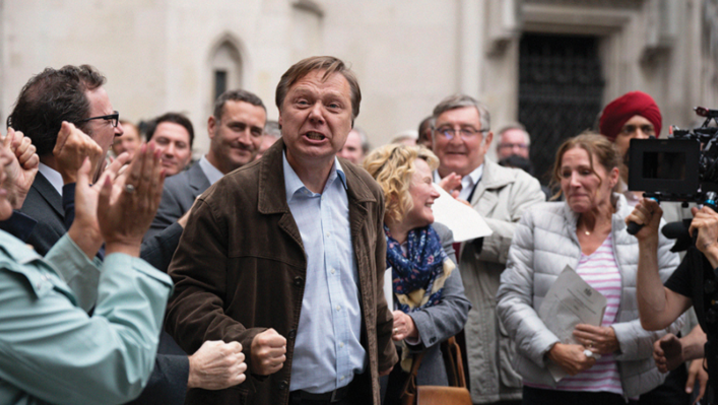Futures members probed and pitched at some of the biggest names in Entertainment television, writes Matthew Bell
The top primetime entertainment shows –
Strictly Come Dancing, The Voice UK, Britain’s Got Talent
and
The X Factor
– all occupy a unique place in the ecology of British TV.
They offer viewers glitz, gossip and star power – and deliver huge audiences. And if an entertainment format can be sold overseas, rights holders can cash in worldwide.
There’s plenty of entertainment programming further down the television food chain, too, in the form of game shows, quizzes, comedy panel series, celebrity specials and dating shows.
In other words, entertainment shows are the lifeblood of TV.
It’s a hugely competitive genre, but one that constantly needs people to work in it. How, though, can newcomers gain a foothold? And, when they have one, how do they scale the TV heights?
The latest RTS Futures event in May, “Speed date the entertainment gurus”, aimed to provide some answers.
Over a series of three-minute dates, the young TV hopefuls sold themselves and their ideas to some of the country’s leading entertainment executives.
At the same time, the gurus offered top tips on how to generate, develop and pitch ideas. ITV Entertainment Commissioning Editor Asif Zubairy reckoned the RTS Futures members had acquitted themselves well during the evening, “especially as they didn’t have much time”.
But, although they may have hit it off with their dates, the young hopefuls wanted more than a one-night stand – could they make a life for themselves in TV?
It’s never easy to break into the industry, but the entertainment gurus were convinced that their genre is alive with opportunities.
“It’s a great time for entertainment. When times are hard people like to sink into a relaxing entertainment show where they can forget about their troubles,” said Zubairy, who has worked across most programming genres during a TV career spanning more than 30 years.
“If young talent comes to our channel and, as a result, gets poached by a bigger broadcaster, then, in a way, we’re doing our job”
Former Managing Director of Princess Productions Sebastian Scott, whose credits include Sky 1’s Got To Dance, argued that there is a demand for “broad-form entertainment”, especially shows that can sell overseas.
“The success of shows such as The Voice UK on BBC One, ITV’s Splash! and Channel 4’s The Jump shows that there are subjects which you can revisit. But you have to find a new way to do them,” he said. Scott recently launched an entertainment indie, Predictable Media.
RDF Head of Entertainment Peter Usher thought that ITV, in particular, could prove fertile ground for new ideas: “Next year, Dancing on Ice won’t be coming back and ITV will also no longer have the Champions League.
“You’d hope that entertainment would seize some of that airtime. There is a really huge opportunity to make entertainment for one of the country’s big terrestrial broadcasters,” he argued.
“From a development perspective, it’s a good time,” added Wall To Wall Entertainment Development Head Poppy Delbridge. “There’s not many things happening in the big acquisitions world, so it’s a good time for original formats if you can get them right.”
It’s unusual for newcomers to win their first break on a top-rating ITV or BBC primetime entertainment show.
New local-TV broadcaster London Live is perhaps a more realistic point of entry.
“We want to be a platform for the best young talent that’s out there,” said Derren Lawford, London Live’s Commissioning Executive. “If young talent comes to our channel and, as a result, gets poached by a bigger broadcaster, then, in a way, we’re doing our job.”
Lawford told Television he was looking for ideas for shows that resonate with his core audience of 16- to 34-year-old Londoners.
“We need shows about their interests and passions, which you never see on screen. Drag Queens of London and [freestyle football show] F2 Kicks Off are great examples, as is Extreme Playgrounds, which is about the urban sports that lots of young Londoners are into.”
Finding a hit entertainment show is no pushover, but executive producer Fi Cotter Craig knows more than most about the genre. Almost a quarter of a century ago she was part of the team that launched Channel 4’s wildly successful The Big Breakfast.
Subsequently, she has worked with the likes of Eddie Izzard, Nigella Lawson and Derren Brown.
It may seem strange, given her TV background, but Cotter Craig believes that a show “doesn’t necessarily need stars to be a hit”.
But she adds: “The audience has to engage with it. [Channel 4’s] Gogglebox, which is an entertainment show – although it may not be called that – is a perfect example. It wasn’t like anything else, it came out of the blue; you sit and watch it – and, boy, do you relate to those people.
“Too often, producers lose sight of who their audience are and what they’re doing. You have to make an effort to engage them when they have a phone, tablet and laptop with them – all of which are clamouring for our attention,” she added.
While all the gurus were adamant that there are opportunities to break into entertainment for committed and enthusiastic people, they also argued that the genre has never been more competitive than it is today.
Money to make programmes is tight, said Usher, whose company, RDF, makes shows such as Sun, Sex and Suspicious Parents.
“Budgets, generally, have gone down and yet the demand for innovation and quality remains as high, if not higher,” said Usher. “I think the challenges for the executives and development teams who make entertainment are as tough as they’ve ever been.
“We have to make what we have go as far as we personally can.”
“Ratings are so important these days,” reckoned Ed Booth, the Series Producer of
The Voice UK
. He worked on the first series of Strictly Come Dancing in 2004 and recalled that “there wasn’t so much pressure then with ratings – the show was allowed time to grow”.
He added: “Doing The Voice UK, you realise you’ve got to come in hard. The expectation is that you are a full-whack show at the top of your game.
“Broadcasters and the public expect you to be the new Britain’s Got Talent or The X Factor from the word go. The pressure is never off.”
Thames Executive Producer Mel Balac, a veteran of top entertainment shows including the BBC’s How Do You Solve a Problem Like Maria? and ITV’s All Star Family Fortunes, argued that “it is hard to get a Saturday-night hit and it is becoming increasingly harder because broadcasters don’t want to take risks. There are huge super brands now and everyone wants a global hit.”
“Daytime is becoming the testing ground for new series,” continued Balac. “Look at Pointless: it runs in the daytime and then there is Pointless Celebrities on Saturday night.”
Balac launched ITV dating game show Take Me Out in 2010, which, she suggests, is the model for any show starting out. “We had a fantastic commissioner, John K Cooper, who really loved the format. He always said the show was a ‘slow burner, give it time’.
“We were so lucky and now we’re going into our seventh series. You have to have people at the network who stick their necks out for you.”
The Thames Executive Producer has also worked in the US on entertainment shows such as Grease: You’re the One That I Want, which was an eye-opener for her.
“It’s tougher in America. You think the budgets are going to be really huge, but they get cut up with off-screen costs, paying huge amounts of money to execs and talent. So it actually becomes a bit of a battle,” she recalled.
“Working in the US made me realise how brilliant British television is. TV over here is still a creative vocation for a lot of people.
“In an American studio, the crew will down tools the minute the wrap is called.”
‘Speed date the entertainment gurus’ was held at The Hospital Club in central London on 19 May. Emily Gale and Susie Worster produced the RTS Futures event. The other gurus appearing were Yalli Productions Managing Director Robert Gray, Channel 4 Entertainment Commissioning Editor Tom Beck and the BBC’s Controller of Entertainment Commissioning, Mark Linsey.
Entertainment gurus’ top tips
ITV Entertainment Commissioning Editor Asif Zubairy: ‘Do as much pitching as you can – the more you do, the better you will get… Don’t pitch an idea that isn’t right for the station or the genre that you’re pitching to.
‘Don’t pitch me an idea that is purely sports because, first of all, I don’t know anything about sports. And secondly, I work in the entertainment department… There are bonkers ideas but there is no such thing as a bad idea.
‘You don’t tend to hear totally new ideas; it’s more a combination of old ideas re-badged as a new idea.’
Predictable Media Founder Sebastian Scott: ‘Look for an idea with an extremely broad appeal. If it’s good, you’re pushing at an open door. A good idea can come from anywhere and we would be excited by it, whether it is from a newcomer or someone who has been making shows for the past 20 years.’
Wall To Wall Entertainment Development Head Poppy Delbridge: ‘Use opportunities like tonight. There are some really good people here – be enthusiastic, watch TV and have something to say about shows that are on at the moment… [and] have some ideas to talk about.’
Series Producer Ed Booth: ‘Take every opportunity that comes your way and then work your way to where you want to be. Don’t try to get to your ideal role instantly. Get into the industry and, once you are in, keep moving around.’
RDF Head of Entertainment Peter Usher: ‘There was a time when you could walk into a commissioner’s office and pitch off paper, but technology has come on leaps and bounds so it’s possible now, using [editing software] Final Cut Pro and suchlike, to take clips off the internet and fashion something from moving pictures to sell your idea…
‘Think really hard about how you pitch. We approach each pitch as if it is a fresh pitch and we try not to get into a pitching pattern – every pitch is bespoke to both the idea and to the broadcaster.’
Executive Producer Fi Cotter Craig: ‘A lot of people [I spoke to] wanted to move from other genres, such as factual, to entertainment – and that is more and more difficult these days, when people are encouraged to specialise.
‘The only way you’re going to achieve that is by being super-nice to people, really helpful and suck up to the people who work in the areas you want to… You need a breadth of experience in TV and then you can decide what you want to specialise in – you should not be pigeonholed right from the start.’






